Silence: Providing Employment to Artisans with Disabilities
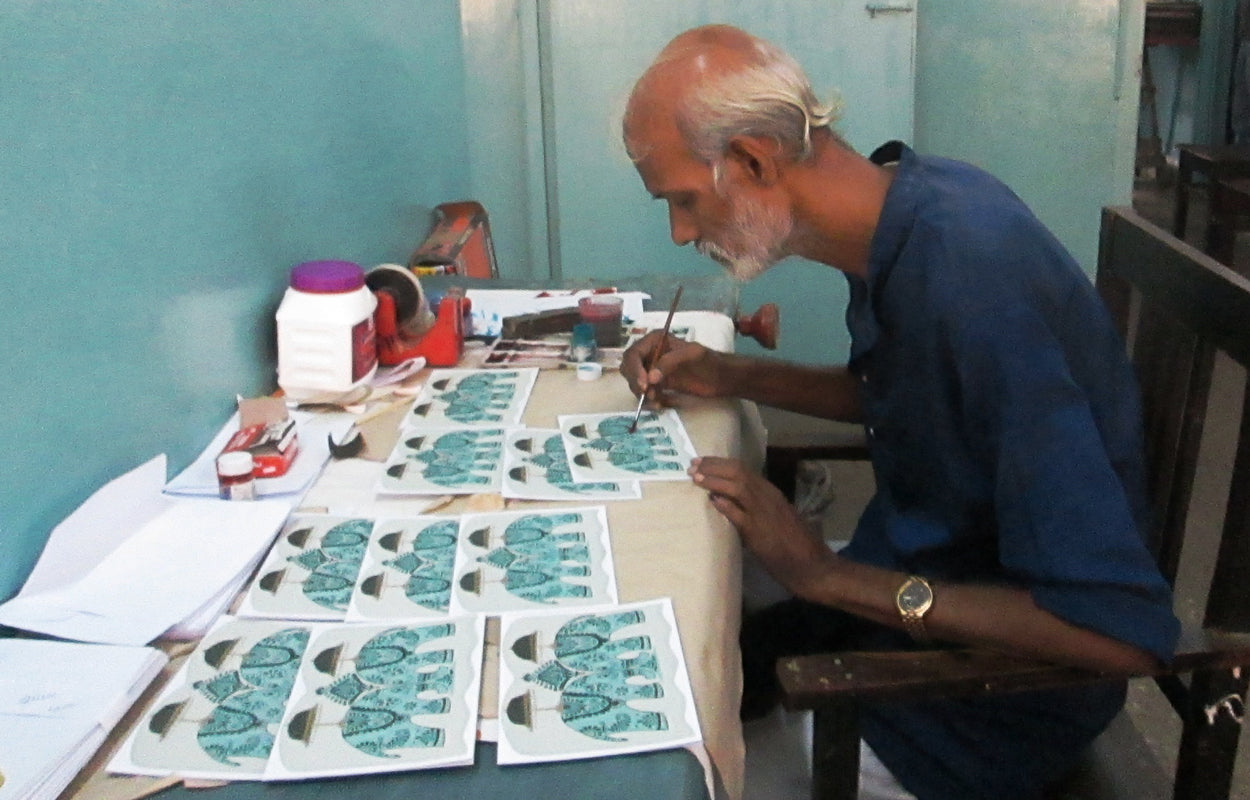
Newcomers to the Silence program for the hearing impaired look to Swapan Sarkar for guidance. At 51 years old, Swapan has been a part of the Silence group in Kolkata, India since he was a teenager. Father of two and one of the most experienced artists at the workshop, it’s hard to believe that he faced a challenging circumstance in his youth. The reason he volunteers to counsel the newest members of Silence is because he knows what it felt like to be in their place. He once felt like an outcast too.
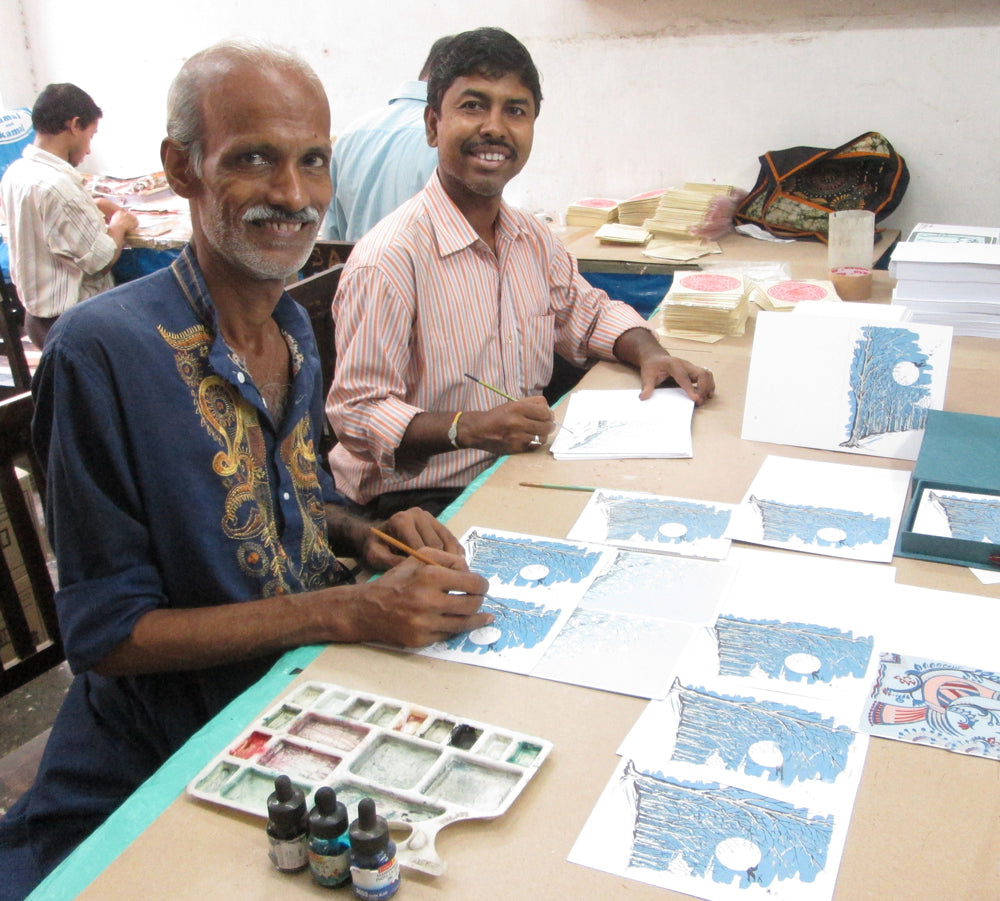
Being born with a physical disability is hard enough, but living with a disability in a developing country is even harder. Born deaf, Swapan had very few resources available to him. He was never given the opportunity to learn sign language because his parents had very little information or guidance about how to help him as he grew up. For Swapan’s family, there was no clear path towards integrating him into mainstream society.
In the United States, sign language classes are available at learning centers throughout the country. There are even entire schools devoted to serving the needs of the hearing impaired, and many offer connections with sign language interpreters.
There were no such tools available to Swapan. Any education at all is difficult for the average Indian family to afford.
He dropped out of school as a teenager, feeling discouraged, alone and angry because he had no way to communicate.
Upon learning of his story, a member from the Silence artisan group in Kolkata introduced him to the Silence program and provided him with an entire year of counseling and sign language lessons before even beginning skills training for the craft workshop.

Silence is set up to address the needs of individuals with physically disabilities, particularly the hearing impaired. They provide housing to newcomers as they complete their training. And for those artisans living in commercial housing, they provide a certification of disability so that they can qualify for free public transportation. Other benefits include retirement fund savings programs, health and accident insurance, and profit sharing.
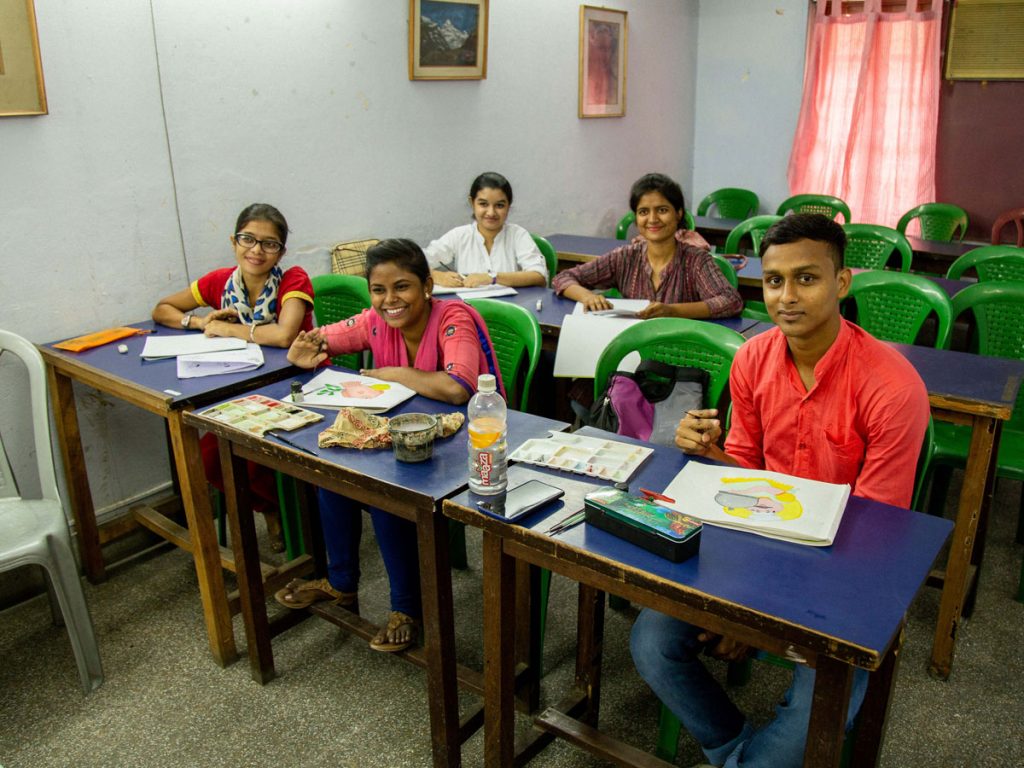
The crafts that Silence chooses to produce are carefully selected to consider the needs of the makers. Candles, incense, and greeting cards are all items that do not require large machinery or power tools that might cause a hazard to anyone unable to hear.
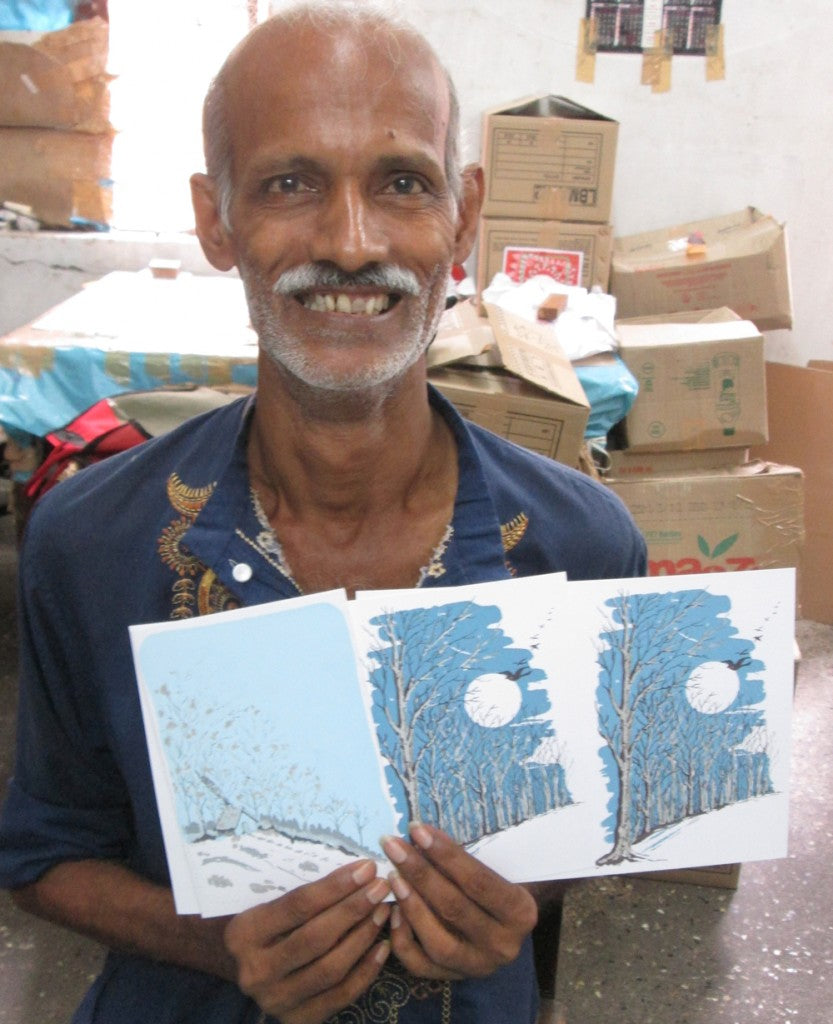
Swapan took interest in painting greeting cards and found satisfaction working alongside others who had faced similar challenges in their lives. The greeting cards that Silence produces are usually screen printed first and then the details are painted by hand.
Working with Silence has impacted every aspect of Swapan’s life.
Through his work, he met a woman who would eventually become his wife. She is also deaf. They have two children: a boy and a girl, both of whom are receiving an education, thanks to the wages both parents earn at the workshop. He even finds time to practice magic tricks, a hobby that he enjoys sharing with family and friends.
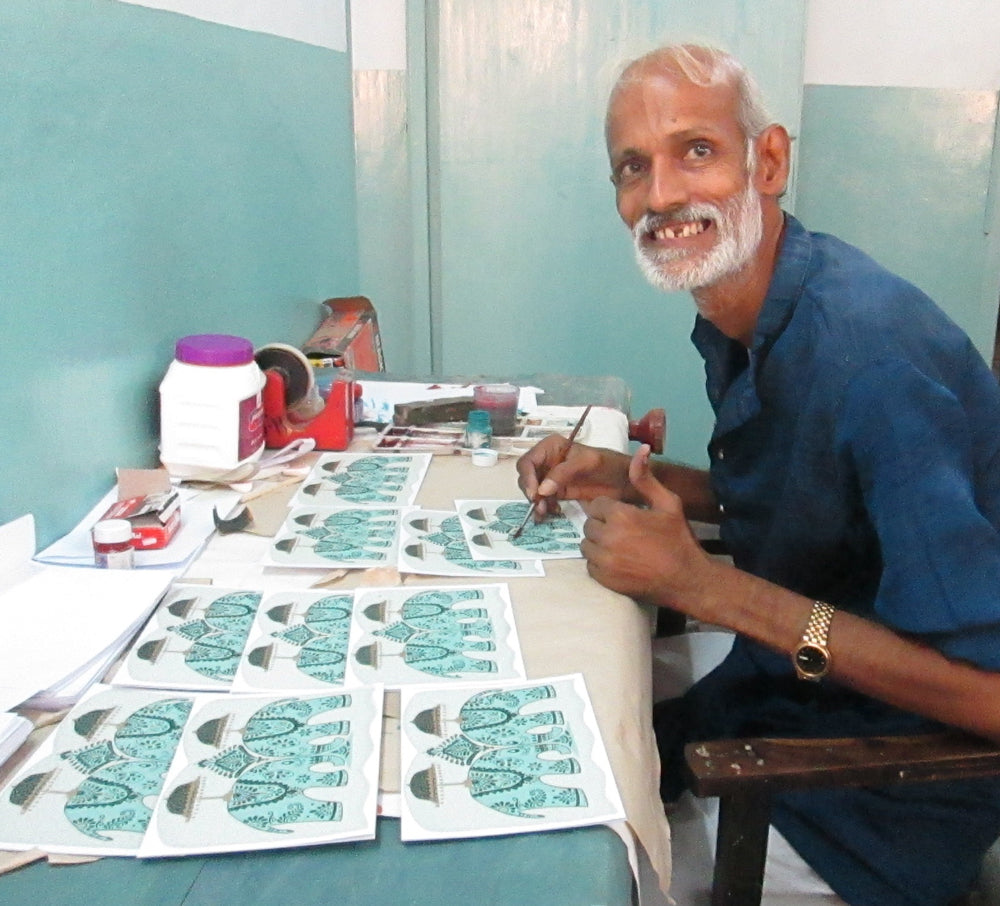
One of the designs he had the pleasure of working on was the Elephant Art Card, which features motifs taken from Indian culture and festivals.
Swapan takes pride in his work and hopes that more customers will learn about people like him so that they will support fair trade and all the good things that Silence is working to achieve.
I was depressed and was thinking that I had no hope in life as I was a deaf. Joining the family of Silence where many deaf people like me were working, had changed the way of my life.
– Swapan Sarkar
This story was originally published in 2016. In 2019, employees from Ten Thousand Villages visited Kolkata, India and were excited to find that Swapan is still creating art at the Silence workshop.
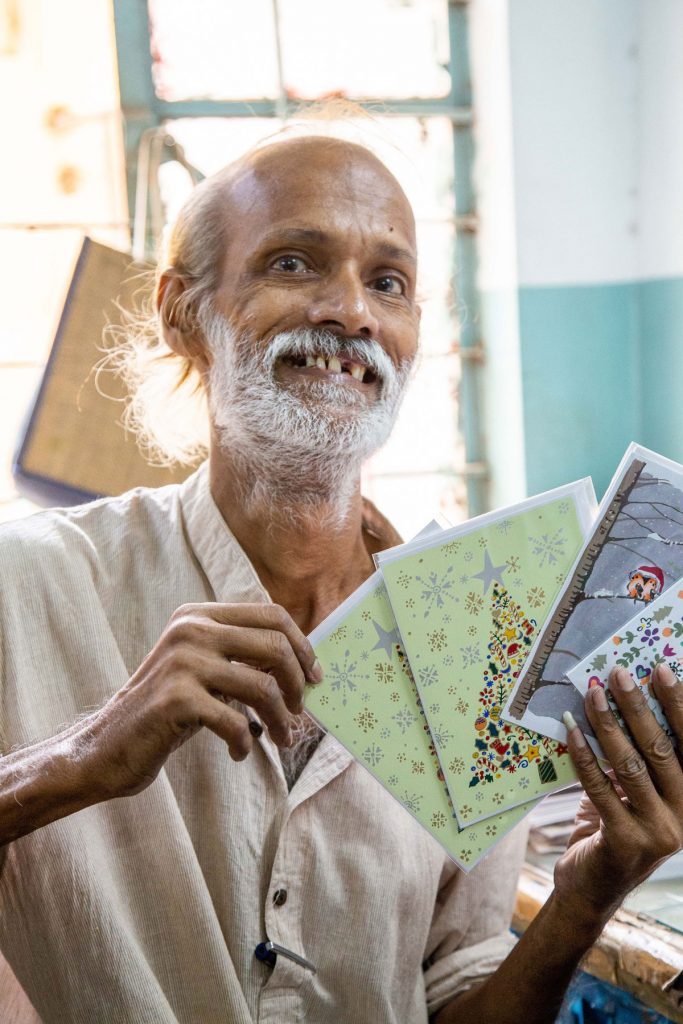


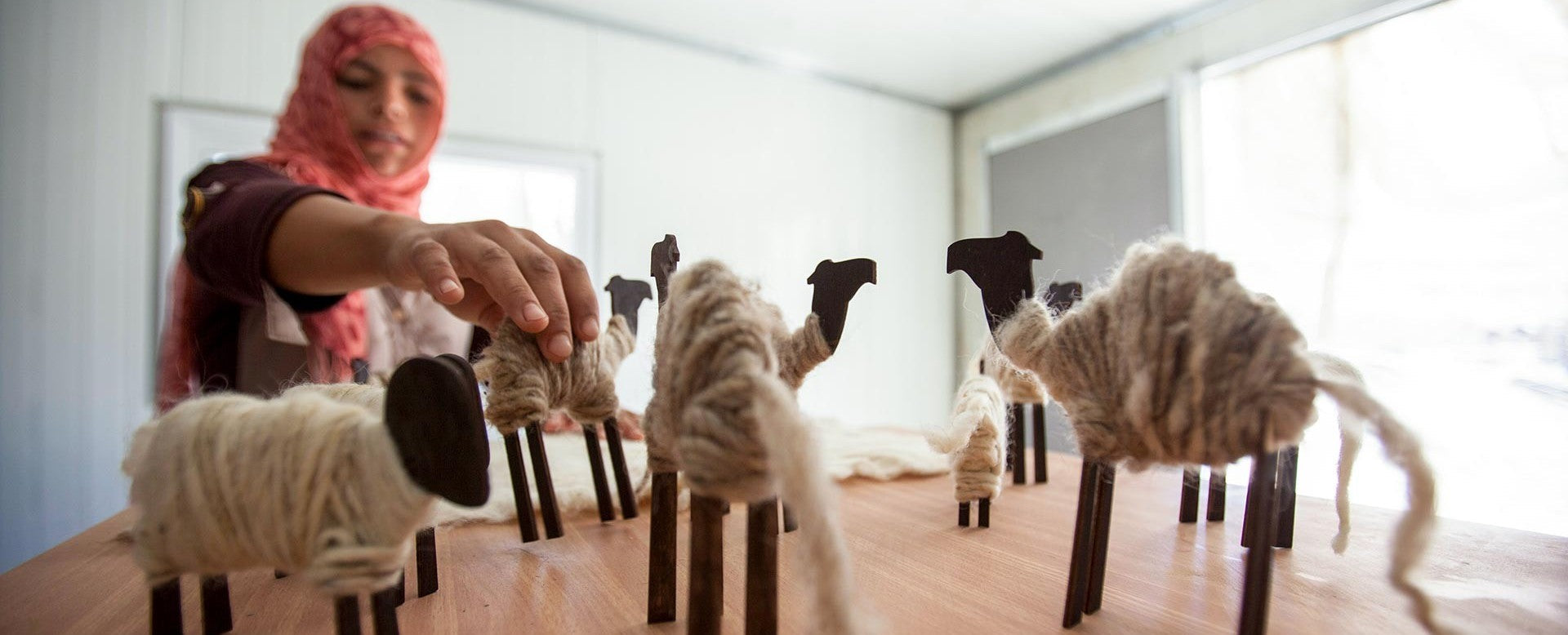

Comments